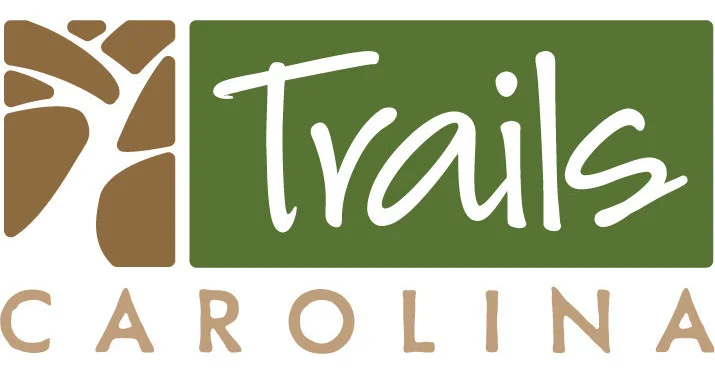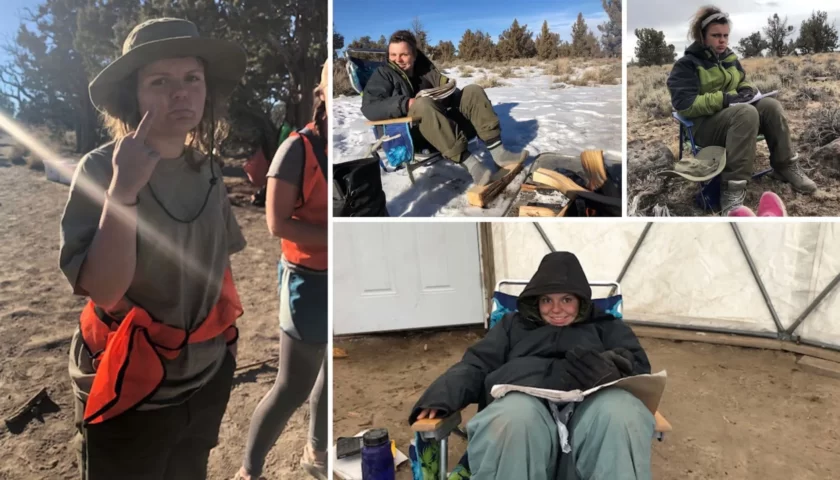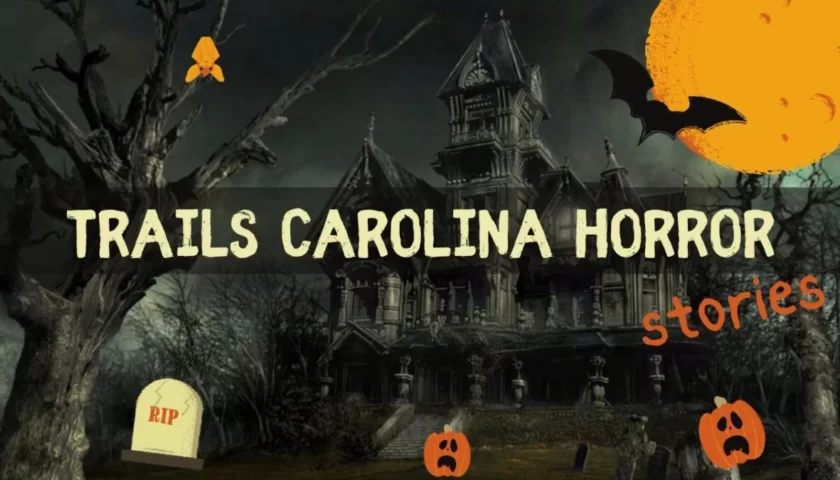Lifestyle
Trails Carolina Horror Stories- Wilderness Therapy’s Dark Side

Trails Carolina, a wilderness therapy program nestled in the heart of the North Carolina mountains, has gained popularity for its unique approach to helping troubled youth.
However, beneath its picturesque landscapes and promises of transformation lies a collection of chilling horror stories that have left many questioning the safety and ethics of this program.
In this article, we will delve into some of the most alarming Trails Carolina horror stories, shedding light on the darker side of wilderness therapy.
Table of Contents
What is Trails Carolina?

Trails Carolina is a wilderness therapy program aimed at helping struggling adolescents and young adults find their way back to a healthier, more productive life. The program involves participants spending time in the wilderness, away from the distractions and stresses of their everyday lives. Through outdoor activities and therapy, Trails Carolina aims to provide a transformative experience.
But not all stories from Trails Carolina are about personal growth and healing. Some recount traumatic experiences that have raised serious concerns.
Trails Carolina Horror Stories: A Glimpse into the Dark Side
Let’s begin by delving into some of the most unsettling Trails Carolina horror stories, as shared by former participants, parents, and staff members:
1.1. Isolation and Fear
One common thread in many Trails Carolina horror stories is the sense of isolation and fear that participants have experienced. Some participants have recounted being taken deep into the wilderness, far from civilization, and left alone for extended periods. This isolation, meant to encourage self-reflection, has sometimes devolved into a terrifying experience.
1.2. Physical and Emotional Abuse
Allegations of physical and emotional abuse at Trails Carolina are not uncommon. Some participants have reported being subjected to harsh discipline, verbal abuse, and physical confrontations with staff members. Such treatment goes against the principles of ethical therapy.
1.3. Lack of Proper Oversight
Many stories highlight the lack of proper oversight and accountability within Trails Carolina Investigation. Some participants claim that they were left unsupervised for extended periods, putting their safety at risk. This lack of supervision raises questions about the program’s commitment to the well-being of its participants.
1.4. Inadequate Nutrition and Hygiene
Reports of inadequate nutrition and hygiene standards at Trails Carolina have also emerged. Some participants have stated that they were not provided with sufficient food or proper sanitary conditions during their time in the wilderness. This can have serious health implications and is a matter of concern.
1.5. Emotional Distress and Trauma
Several participants have described enduring significant emotional distress and trauma while enrolled in the program. They recount feeling overwhelmed, anxious, and emotionally scarred by their experiences at Trails Carolina.
Trails Carolina Horror Stories on YouTube
The internet has played a significant role in amplifying the Trails Carolina horror stories. YouTube, in particular, has become a platform where former participants and concerned individuals share their accounts and experiences. These videos often provide firsthand insights into the challenges faced by those who have been a part of the program.
The Trails Carolina Investigation
As the horror stories continued to mount, concerns reached a tipping point, leading to an investigation into Trails Carolina’s practices and allegations of abuse. The investigation aimed to determine the veracity of these claims and whether the program adhered to ethical standards.
3.1. The Outcome of the Investigation
While the investigation into Trails Carolina did uncover some troubling practices and lapses in oversight, it did not find conclusive evidence of widespread abuse. However, it highlighted the need for increased regulation and oversight of wilderness therapy programs.
Reviews and Reactions
Reviews of Trails Carolina vary widely. Some parents and participants have praised the program for its positive impact on troubled youth, while others have shared harrowing tales of abuse and trauma. The stark contrast in these reviews underscores the complex nature of the issue.
4.1. The Importance of Informed Decision-Making
For parents and families considering Trails Carolina or any wilderness therapy program, it is crucial to conduct thorough research and carefully evaluate the risks and benefits. Consider reading reviews and speaking with former participants and their families to gain a more comprehensive understanding of what to expect.
The Need for Ethical Wilderness Therapy

While wilderness therapy can be a valuable tool for personal growth and healing, the Trails Carolina horror stories serve as a stark reminder of the importance of ethical and responsible practices within the industry.
5.1. Transparency and Accountability
Wilderness therapy programs must prioritize transparency and accountability in their operations. This includes ensuring proper oversight, adhering to ethical standards, and promptly addressing any concerns or allegations of abuse.
5.2. Informed Consent
Participants and their families should be provided with comprehensive information about the program’s practices, expectations, and potential risks. Informed consent is essential to ensuring that individuals enter the program willingly and with a clear understanding of what it entails.
5.3. Regulation and Oversight
The Trails Carolina investigation highlighted the need for increased regulation and oversight of wilderness therapy programs. Government agencies, advocacy groups, and industry stakeholders must work together to establish and enforce guidelines that protect the well-being of participants.
The Impact of Trails Carolina Horror Stories

The Trails Carolina horror stories have had a profound impact on both the wilderness therapy industry and the lives of those who have undergone the program. Let’s take a closer look at the consequences and reactions that have arisen in the wake of these unsettling narratives.
1. Raising Awareness
One of the most significant outcomes of these horror stories is the heightened awareness surrounding wilderness therapy programs like Trails Carolina. The stories, shared on YouTube, in the media, and through personal accounts, have brought attention to the potential dangers and shortcomings of such programs. This increased awareness has prompted discussions about the need for reform and oversight within the industry.
2. Emotional Toll on Participants
For those who have experienced the darker side of Trails Carolina, the emotional toll can be long-lasting. Participants who endured abuse, isolation, or trauma during their time in the program often struggle with trust issues, anxiety, and post-traumatic stress. These lasting effects underscore the importance of ensuring the safety and well-being of participants in wilderness therapy.
3. Parental Concern and Guilt
Many parents who enrolled their children in Trails Carolina with hopes of positive transformation have been left with a sense of guilt and regret. The horror stories have sparked introspection among these parents, who now question their decisions to place their children in such programs. The emotional burden they carry is a testament to the need for transparency and thorough research before enrolling a child in wilderness therapy.
4. Industry Scrutiny and Reform
The Trails Carolina investigation, while not finding widespread abuse, has led to increased scrutiny of the wilderness therapy industry as a whole. This scrutiny has pushed some programs to reevaluate their practices, implement more robust oversight measures, and prioritize participant safety. It has also spurred discussions about the ethical responsibilities of wilderness therapy providers.
5. Advocacy for Change
In response to the horror stories, advocacy groups and concerned individuals have emerged to advocate for change within the wilderness therapy industry. These groups seek to establish standardized guidelines, enhance transparency, and ensure that all programs prioritize the well-being of participants. Their efforts are critical in addressing the issues raised by the Trails Carolina horror stories.
6. Legal Action
Some individuals who have experienced abuse or trauma at Trails Carolina have pursued legal action against the program. Lawsuits have been filed in an attempt to hold the program accountable for any alleged misconduct. These legal proceedings highlight the gravity of the allegations and the potential consequences for programs that fail to provide a safe and ethical environment.
7. Healing and Recovery
For those who have endured traumatic experiences at Trails Carolina, the journey to healing and recovery is ongoing. Therapy and support are crucial in helping participants process their experiences and rebuild their lives. The horror stories have shed light on the importance of providing comprehensive aftercare and support for program alumni.
8. A Call for Change
In light of the Trails Carolina horror stories, it is essential for the wilderness therapy industry to undergo a transformation. The focus should be on providing ethical, safe, and effective therapeutic experiences for participants. This transformation should encompass the following key principles:
A. Transparency
Wilderness therapy programs must be transparent about their practices, qualifications of staff, and the expectations placed on participants. Clear communication can help prospective participants and their families make informed decisions.
B. Oversight and Accountability
Robust oversight mechanisms, both within the programs and through external bodies, are essential to ensure the safety and well-being of participants. Accountability for any misconduct or abuse must be swift and thorough.
C. Informed Consent
Participants and their families should receive comprehensive information about the program and its practices, allowing them to give informed consent before enrollment. This includes an understanding of potential risks and expected outcomes.
D. Ethical Treatment
Ethical treatment should be the cornerstone of all wilderness therapy programs. This means providing participants with a safe, supportive, and respectful environment that encourages personal growth and healing.
E. Industry Standards
The wilderness therapy industry should work collectively to establish and enforce industry-wide standards and best practices. Collaboration among programs, advocacy groups, and regulatory bodies is crucial in achieving this goal.
Conclusion
Trails Carolina may offer a picturesque setting for wilderness therapy, but it is not immune to the troubling stories and allegations that have emerged over the years. While some participants have benefited from their experiences, others have faced isolation, abuse, and emotional trauma.
It is essential for prospective participants and their families to approach wilderness therapy with caution and make informed decisions. The Trails Carolina horror stories serve as a sobering reminder that not all experiences within such programs are positive, and the industry must prioritize ethical practices and accountability to ensure the well-being of those it serves.
To know more about keep reading Lemony Blog

-

 Business3 years ago
Business3 years agoHow to Do Long-Distance Moves with Children
-

 Travel2 years ago
Travel2 years agoQuick Guide: Moving To Santa Rosa?
-

 Real Estate3 years ago
Real Estate3 years agoWhy Dubai Festival City is a Great Neighbourhood for Young Learners
-

 Business3 years ago
Business3 years agoIs Guest Posting a Good Inbound Marketing Strategy?
-

 Business1 year ago
Business1 year agoThe Ultimate Guide To Thriving In Your Printing Franchise
-

 Business1 year ago
Business1 year agoExploring The Benefits And Challenges Of Restaurant Franchising
-

 Tech3 years ago
Tech3 years agoCyber Table That Will Change Your Life
-

 Lifestyle1 year ago
Lifestyle1 year agoDallas’ Hidden Gems: 6 Must-Try Restaurants Off The Beaten Path!









Recent Comments